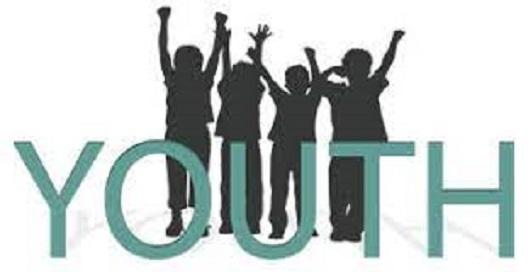Africa-Press – Mauritius. There was a time when we talked about the age of reason. It corresponded more or less to the middle of adolescence, that is to say around 14/15 years old.
With schooling and education at that time closely followed by parents (even if they had no formal education) and who firmly exercised their right to control, little by little, young people reached a stage of maturity in gestation.
The affective stability of the family cocoon and the moral authority of both the parents and the ‘misses’ and ‘sirs’ – and of the schoolmaster too, for that matter – were reinforced through a bond between them.
Indeed, parents demanded that children give them the same respect. Effectively, the school and the teachers acted as an extension of the family. The children knew this intuitively.
They understood that they were going to evolve in a space where defined parameters reigned. In addition to the rigor, order and discipline that subtly permeated them, they trusted this framework of mutual respect and support.
Arrived at the end of their school studies, they arrived – on the threshold of adulthood – equipped with a certain confidence in their abilities, accompanied by a sense of direction that was perhaps nebulous but which was still going to become clearer without too much delay.
For some time now, we have been helplessly witnessing the collapse of this base and, alas, we must clearly conclude that this time is over. There is no more reason: there is only unreason.
And it starts at the beginning – maybe even before – adolescence. Neither the young people who are aware of it nor the adults (their parents and others) know which saint to turn to to curb this vertiginous rout.
The more we try to understand, the less we succeed – and even more complicated is the task of finding any solution. The reasons are undoubtedly multiple and complex. But we can certainly identify some undeniable causes.
There is the cult of an almost extremist individualism, which is based on the premises of human rights, later extending to the rights of the child, and without any counterpart of responsibilities closely associated with it. There is no doubt that these rights should be universal, but their application must certainly take into account the context. Let’s cite an example.
This mother whose son, in HSC, had threatened to report her to the police – citing, please, the rights of the child! – because she had asked him to tidy up her room which was in a state let’s say… trance! A sermon and a good smack on the buttocks would have brought the recalcitrant to his senses.
In the process, he would have had to apologize or risk being deprived of his dinner. This would have been part of the prerogatives and the authority of the mother because, in this kind of case, the law has limits, we will agree.
We only have to listen to the words of some teachers and we will quickly appreciate that their complaints about the behavior of students are symptomatic of a generalized evil.
They have no power to sanction the verbal and physical deviations of the latter, for whom the total freedom to do what they want in class or outside has become a license, even an acquired right. Not to mention that here below there is also the factor of political interference, which harms the maintenance of discipline. . .
The advent of electronic devices (such as smartphones, tablets, and so on, which are within everyone’s reach – moreover increasingly miniaturized and therefore easy to hide) has certainly complicated matters.
How many incidents are related to these instruments in schools? Is it impossible to exercise control? Several years ago, I had read an article by the famous French geneticist – Albert Jacquard, who talked about the perverse effects of science.
Now I understand better – if there is an example that illustrates this perversion very well, it must be the electronic devices made available to those who respect no limits!
It is not today that cigarettes, alcohol and drugs have penetrated the school, in addition to early risky sexual behavior. Over the years, every survey conducted by the WHO – the Global School Health Surveys – showed deterioration in each of these variables.
Like what, education is useless. Indeed, these young people are not interested in paying attention to the advice they are constantly being given about health and the long-term consequences on their lives.
We are in the logic of excessive consumption, of unlimited material enjoyment – and this with means that are quite easily available, given the excessive generosity of many parents vis-à-vis their children.
Otherwise, there is no embarrassment in illegally obtaining what one needs, if necessary, by resorting to violence. Everything is disposable (‘disposable’) – life too.
This is one of the reasons synthetic drugs wreak havoc. We no longer learn that life is precious, sacred, that as humans we have a duty not only not to harm ourselves, but also not to cause harm to others.
And, once out of school, these deviants adopt this same attitude in society. Witnesses to acts of rudeness and lack of civility: many daily incidents report that young people, for example,
obstruct public passages by playing football or simply by congregating here and there; they respond to a request from drivers or pedestrians to clear the way with invectives and even violence, directed against people and vehicles.
Dysfunctions in the school environment, which eventually overflow into public places, are a reflection of our society in moral drift and prey to greed.
As the famous English philosopher Bertrand Russell said, the increase in material knowledge (and by extension, the accumulation of material objects) has not been accompanied by a similar increase in wisdom in humans.
But who cares about the words of the wise these days? Literature and poetry, which we studied up to “Form V” in my time, introduced us to the understanding and appreciation of our humanity, its strengths and its weaknesses, its beautiful but also of its ugliness, of all that is positive but also of all that is negative and that had to be avoided – something that one imbibed without even being explicitly instructed in it.
Nowadays, since education aims only at utilitarian ends with choices of subjects for this purpose, we have neglected the teaching of knowledge that would help our balanced development as humans.
That said, it is a fact that young people tend to imitate adults – and therefore the example comes – should come from above, that is to say from adults, but imperatively from those who are in the ‘public space. But what do we see?
A parade, even an explosion of shortcomings, mistakes and escapades at all levels of the social hierarchy, starting with the presidency of the country, whose excesses concern not only rupees in the millions, but even more serious the possibility of wrong vis-à-vis the Constitution of the country currently under investigation by a commission of inquiry.
.
.
Crooked politicians, so-called mafia nexus – by those who know more – between politicians, dealers and drug couriers, lawmen almost literally in a ‘bundle’ with the latter according to the Lam Shang Leen Commission, members of the the order or the anti-drug squad who would themselves be involved in the traffic – what will happen to our country? to the community?
The same adults – who are supposed to protect the children – sell them drugs, sexually abuse them and take them into prostitution rings… They use all sorts of tricks to tempt them.
For example, the temptation by means of alcoholic beverages such as vodka and aimed in particular at young people. Who invents these marketing methods if not adults?
On a global scale, the surge for years of offenses of pedophilia within the Catholic clergy had to bring the Pope out of his serenity to comment on them painfully.
In addition to all this, since the beginning of the year, there have been cases of sexual harassment which has cost a Hollywood great dearly and which has given birth to the #MeToo movement in several countries.
But, unsurprisingly, it has gone beyond Hollywood to extend to other sectors such as business, finance, politics (it seems almost naturally)! So, in view of all this shamelessness, is it surprising that young people no longer have reliable benchmarks, no more role models worthy of the name that they can emulate?
It is time for us all to pull ourselves together, which requires a great effort and investment in order to find the meaning of life. And we don’t have much time, unfortunately.
For More News And Analysis About Mauritius Follow Africa-Press







